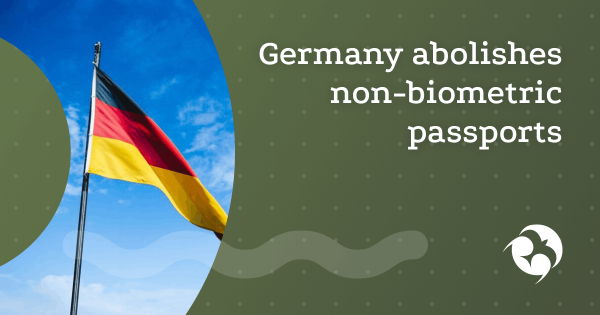Visa regulations are changing again. Effective January 1, 2026, Germany will introduce strict entry document requirements for Russian citizens. Now, only biometric passports are valid—the old format is no longer accepted.
The German Embassy in Moscow published an official notice on its website: non-biometric passports are no longer recognized for entry into Germany. The only exception is if the old document already contains a valid German visa.

номад-эксперт
What does this mean in practice?
Russian citizens with biometric passports (those issued for 10 years with a number beginning with “7”) can easily obtain visas and enter Germany. For holders of non-biometric documents (5-year passports), the situation is more complex.
As of January 1, 2026, the following rules apply:
- Visas and residence permits are issued only for biometric passports.
- Renewal of residence permits is similar.
- If a visa was issued before December 31, 2025, using an old passport, it can be used until its expiration date.
- Residence permits issued before this date also remain valid.
Not Only Germany
Germany joins seven other European countries that have already introduced similar requirements. France switched to biometrics on May 3, 2025; new applications are only accepted with 10-year passports, although visas previously issued using older documents remain valid. The Czech Republic, Denmark, Estonia, Latvia, Lithuania, and Iceland also no longer recognize non-biometric Russian passports.
These rules will also apply at the consulates of other Schengen countries if the visa is intended for travel to Germany. In other words, biometric passports are becoming the de facto standard for the entire Schengen area.
Statistics and Trends
According to the Russian Ministry of Internal Affairs, Russians obtained over 3.8 million international passports in the first nine months of 2025. In 2024, the total number of documents issued was 6.5 million—an increase of 9.2% compared to 2023. Meanwhile, demand for 10-year biometric passports increased by 41.5%, while demand for 5-year passports fell by 11.3%. The trend is clear: citizens are switching to biometrics en masse.
As for German visas, statistics show a recovery. In the first half of 2025, Germany issued 17,600 visas to Russians. In 2024, this figure was 27,300 compared to 20,800 in 2023. If this rate continues, the number could approach the 2022 record of 42,100 visas by the end of the year.
What to do now
If you’re planning a move, applying for a residence permit, or extending your visa in 2026, it’s worth getting a biometric passport in advance. Other visa requirements remain the same: verification of documents, grounds for stay, and financial support.
Additional information can be found on the official websites of the Russian Consulate General in Berlin and the Consulate in Bonn, as well as the website of the German Embassy in Moscow.

Поможем в подборе лучшей программы ВНЖ,
расскажем о подводных камнях,
ответим на ваши вопросы
Planning to obtain a visa or residence permit in Germany? Immigration legislation is constantly being amended, and navigating the nuances can be challenging. Our specialists will help you navigate current requirements, prepare documents, and choose the best path for your situation. If you’re considering moving to Germany or obtaining a residence permit, request a consultation. We’ll discuss your options and help you avoid mistakes at every stage.











